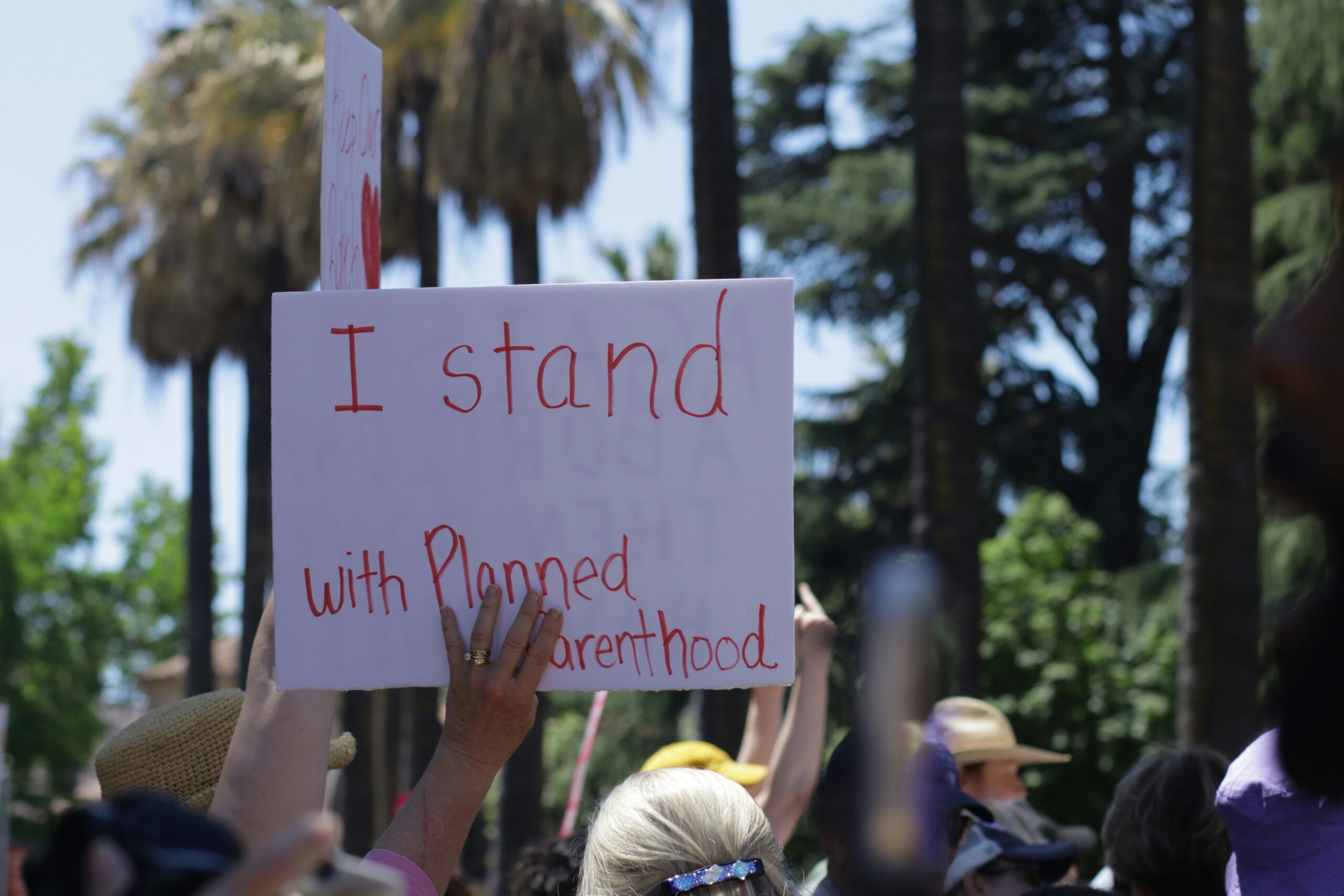Planned Parenthood is more than just a healthcare provider – it’s an essential part of the reproductive health landscape for many women. Whether it’s for birth control, cancer screenings, STI tests or simply getting informed about sexual health, Planned Parenthood has been a lifeline for those who might otherwise struggle to find affordable, accessible care. But recently, there’s been a lot of talk about whether funding for the organization is on the chopping block. And if that happens, what does it mean for women who rely on its services? Here’s everything we know.
Is Planned Parenthood Funding Cut?

To put it simply, Planned Parenthood’s funding is caught in the middle of a political battle. On one hand, the organization provides essential services (such as birth control, screenings and sexual health education) that help millions of women stay healthy. On the other hand, there are political forces that see Planned Parenthood’s involvement with abortion care as a reason to push for defunding.
Though federal law already prohibits the use of taxpayer dollars for abortion services, Planned Parenthood offers a wide range of healthcare services that aren’t limited to abortion. The big question is whether funds for these services (like STI testing and cancer screenings) will continue to flow to the organization or be diverted elsewhere.
Recent efforts by the Trump administration to restrict funding for Planned Parenthood have brought this issue to the forefront again. This is leading many to wonder: will this lifeline to millions of women – especially women of color – be cut? It seems as though it’s a possibility since funds from Medicaid Insurance have been frozen, and could eventually be eliminated entirely.
The Politics Behind Planned Parenthood
The battle over Planned Parenthood funding is not just about healthcare – it’s about values, rights and access. For many conservatives, defunding Planned Parenthood is about opposing abortion. This stance has gained traction with the rise of more conservative leadership in the U.S. These politicians believe that public funds should not go to organizations that provide abortion services – even though abortion is just a small portion of what Planned Parenthood does.
However, for advocates of reproductive rights, defunding Planned Parenthood is a direct attack on the ability of women to access affordable healthcare. It’s about ensuring that those who are most vulnerable continue to have access to necessary healthcare services that go far beyond abortion. It’s also about recognizing that Planned Parenthood is often the only accessible healthcare provider for many low-income communities. For Black women in particular, who are disproportionately affected by healthcare disparities, defunding Planned Parenthood would make it even harder to access life-saving services.
The Trump Administration Has Frozen Affiliate Funding
The push to defund Planned Parenthood was a significant part of the Trump administration’s political agenda. Back in 2019, the New York native introduced a rule that would block many organizations (including Planned Parenthood) from receiving Title X family planning funds if they performed or referred for abortion services. The rule was a direct attempt to limit the financial support Planned Parenthood receives, despite the fact that federal funds are not used for abortion procedures themselves.
In 2025, this battle continues. The current administration has frozen federal funding for several Planned Parenthood affiliates, arguing that there are concerns about the organization’s compliance with laws and regulations. This freeze affects programs that provide critical services like cancer screenings, STI tests and birth control, but is part of a larger strategy to reduce federal funding for organizations that provide abortion care. While there have been court rulings in the past that temporarily blocked some of these cuts, the fight is far from over.
What Is Happening in South Carolina?
On June 26, 2025, the Supreme Court officially blocked Planned Parenthood from suing the state of South Carolina over its decision to pull Medicaid funding. From now on, this ruling has set the precedent that states can cut clinics’ funding, as South Carolina has done with the two Planned Parenthood clinics. In a 6-3 ruling, the court’s decision gives states more authority to exclude providers they oppose. So, providers who give patients access to things like abortions, birth control and cancer screenings are taking a loss.
Supporters of this ruling say that it upholds states’ control over their Medicaid programs, but critics argue that it strips low-income patients of their personal choice. And in more conservative states, this means less access to critical healthcare services. As CNN reports, this move could encourage other conservative states to cut Planned Parenthood funding from their Medicaid programs. Though the funding in question was a small fraction of South Carolina’s Medicaid budget, the case sets a national precedent that may allow red states to cut Planned Parenthood out of public health programs.
What Might Planned Parenthood Funding Cuts Mean for You?
So, what’s actually at stake when we talk about Planned Parenthood’s funding being cut?
Healthcare Access for Women of Color
For many Black women, especially early adults who may not have other options for affordable healthcare, Planned Parenthood is a lifeline. Cutting funding means less access to essential services like birth control, cancer screenings, STI testing and more. And when it comes to reproductive health, accessibility is everything.
The Political Back-and-Forth
As we’ve seen, political tides shift swiftly – what happens under one administration might change under the next. The Biden era, for example, was more supportive of Planned Parenthood. But that doesn’t mean future political shifts won’t pose new challenges. It’s important to stay informed and involved in advocating for healthcare rights.
Advocacy is Key
If you care about equitable access to healthcare, especially for underserved communities, now’s the time to speak up. Whether it’s through voting, sharing information or joining advocacy efforts, your voice matters. Supporting reproductive rights and access to healthcare can make a real difference.
Know Your Options
Planned Parenthood is an important provider for many. But it’s not the only organization offering these services, thankfully. However, the reality is that for many women, especially those in low-income or underserved communities, Planned Parenthood remains one of the most trusted and accessible providers. If its funding is cut, there may be fewer options for affordable, quality care.
Frequently Asked Questions
Who is the CEO of Planned Parenthood?
The President and CEO of Planned Parenthood is Alexis McGill Johnson, according to the organization’s website. Under her leadership, they have become the country’s most recognized and trusted name in sexual and reproductive health care.
What does Planned Parenthood do besides abortions?
Planned Parenthood offers a range of services, not just abortions. Vaccines, STD testing, prenatal and postpartum services, pregnancy planning and testing and mental health services are among their other services. Appointments can be booked directly on their website, where you can also find more information.
Is Planned Parenthood free?
No, technically, Planned Parenthood services are not free. Some services might come at a lower cost or be free, though, depending on insurance coverage (Medicaid is one provider that typically can help with this).
